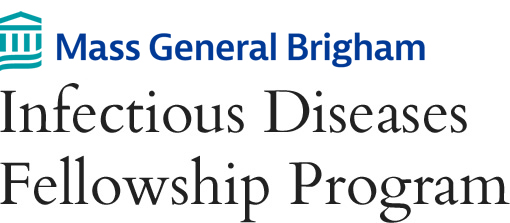Dr. Stephen B. Calderwood receives the Partners Medical Education Outstanding Mentor Award
Dr. Calderwood, Chief Emeritus of Infectious Diseases at Massachusetts General Hospital and Morton N. Swartz MD Academy Professor of Medicine (Microbiology and Immunobiology) at Harvard Medical School, received the 2015-2016 Partners Medical Education Outstanding Mentor Award. This award is given to a faculty member who has made an exceptional contribution as a mentor. Dr. Calderwood... Read More
Drs. Jamie Maguire and Paul Sax each receive the Distinguished Clinician Award
Dr. Maguire, Professor of Medicine, Harvard Medical School, and Dr. Sax, Professor of Medicine, Harvard Medical School, received the Distinguished Clinician Award from the Brigham and Women’s Hospital. This award is given to recognize the hospital’s most accomplished physicians. Recipients are selected based on their local, regional, or national recognition as outstanding clinicians, as well... Read More
Dr. Cammie Lesser receives a Massachusetts General Hospital Research Scholars Award
Dr. Lesser was selected as a 2016 MGH Research Scholar. The MGH Research Scholars program recognizes innovative and forward-thinking biomedical researchers. It provides research funding to support research projects that explore new and uncharted territories. Dr. Lesser’s project is entitled “Designer probiotics for the treatment of infection, inflammation and cancer.” To read more, click here.
Recognition of faculty as Top Doctors for Infectious Disease: Drs. Cameron Ashbaugh, Nesli Basgoz, Stephen Calderwood, Jay Fishman, Francisco Marty, Paul Sax, and Sigal Yawetz.
Seven infectious disease specialists from the Brigham and Women’s Hospital and Massachusetts General Hospital have been recognized by Castle Connolly Medical as “Top Doctors” in Infectious Disease. Castle Connolly selects doctors for this honor in a process that involves peer nomination and review of credentials by their experts. To read more, click here.
Important progress being made towards achieving UNAIDS HIV treatment targets in Botswana
Dr. Shahin Lockman and colleagues report on the progress in Botswana of achieving the United Nations AIDS targets for 2020, which are for 90% of HIV-infected individuals to know their HIV status, 90% of these to be receiving sustained retroviral therapy, and 90% of these to have virological suppression. The investigators report that in Botswana,... Read More
New insights into how gram-negative bacteria deliver virulence proteins into host cells
Dr. Marcia Goldberg and colleagues described a key step in the process by which the intestinal pathogen Shigella and other gram-negative bacterial pathogens inject virulence proteins (effector proteins) into host cells during infection. Effector proteins establish and promote infection of host cells. The most common mechanism used by bacteria to deliver these proteins is a... Read More
Alterations in the human virome and bacterial microbiome associated with immunodeficiency in progressive HIV infection
In collaboration with colleagues at Washington University, St. Louis, Dr. Doug Kwon and associates characterized the viruses and bacteria in the intestines of individuals with progressive HIV infection. They show that the phylogenetic diversity and abundance of viruses and bacteria in these individuals differ from controls, with increased abundance of certain bacteria that have been... Read More
Genes identified that contribute to Vibrio parahaemolyticus colonization of the intestines
Using transposon-insertion sequencing, Dr. Waldor and colleagues identified genes of V. parahaemolyticus, the most common cause of seafood-borne gastroenteritis, that contribute to viability of the pathogen in vitro and in the mammalian small intestine. They show that the V. parahaemolyticus toxR locus is required for fitness of the pathogen in animals. ToxR is required because... Read More
Novel targets in tuberculosis growth and virulence identified
The ways in which tuberculosis synthesizes, degrades, and transports lipids is critical to the pathogen’s growth in an infected host. Dr. Eric Rubin and colleagues show that two genes involved in transport of the lipid triacylglyceride. These genes are required for regulation of bacterial growth and metabolism during infection of mice. The requirement for these... Read More
Key features of the HIV reservoir found that predict when HIV rebounds after treatment discontinuation
A major goal for HIV treatment is sustained antiretroviral therapy-free HIV remission. Critical to the analysis of potential therapeutic approaches for treatment interruption is the identification of biomarkers that predict the time to viral rebound after treatment interruption. Drs. Li, Gandhi, and colleagues show that higher pre-analytic treatment interruption cell-associated HIV RNA levels were significantly... Read More
